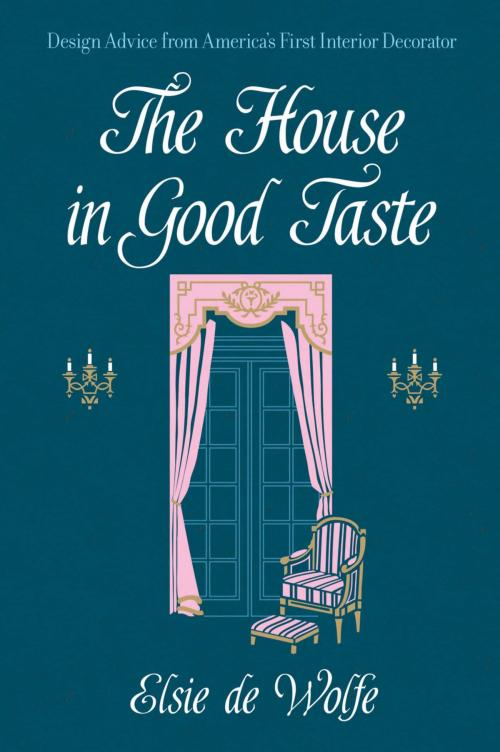The House in Good Taste
Design Advice from America's First Interior Decorator
Nonfiction, Art & Architecture, Architecture, Decoration & Ornament, Individual Architect, Interior Design| Author: | Elsie de Wolfe | ISBN: | 9780486826233 |
| Publisher: | Dover Publications | Publication: | October 23, 2017 |
| Imprint: | Dover Publications | Language: | English |
| Author: | Elsie de Wolfe |
| ISBN: | 9780486826233 |
| Publisher: | Dover Publications |
| Publication: | October 23, 2017 |
| Imprint: | Dover Publications |
| Language: | English |
"Good taste can be developed in anyone, just as surely as good manners are possible to anyone. And good taste is as necessary as good manners," declared Elsie de Wolfe, the "first lady" of American interior design. Although de Wolfe decorated the homes of wealthy, socially prominent clients, she always maintained that her vision of elegant but comfortable living is attainable to all. This timeless 1913 book, written in a friendly, conversational tone, explains how to design, furnish, and decorate a house in order to make it a beautiful, useful, and livable home.
De Wolfe pioneered the concept of the home as a representation of the owner's identity, and this book defines her decorating methods, philosophy, and approach to creating spaces for gracious entertaining. Part step-by-step manual and part aesthetic treatise, this volume advocates for simpler yet more refined decor. In contrast to the Victorian penchant for dark furniture, bric-a-brac, and heavy draperies, de Wolfe advised her readers to let in natural light, to replace gaudy colors with beige and ivory, and to abandon clutter. Her practical suggestions, illustrated by period photographs, illuminate the attitudes of a century ago while retaining their resonance for modern-day interior designers.
"Good taste can be developed in anyone, just as surely as good manners are possible to anyone. And good taste is as necessary as good manners," declared Elsie de Wolfe, the "first lady" of American interior design. Although de Wolfe decorated the homes of wealthy, socially prominent clients, she always maintained that her vision of elegant but comfortable living is attainable to all. This timeless 1913 book, written in a friendly, conversational tone, explains how to design, furnish, and decorate a house in order to make it a beautiful, useful, and livable home.
De Wolfe pioneered the concept of the home as a representation of the owner's identity, and this book defines her decorating methods, philosophy, and approach to creating spaces for gracious entertaining. Part step-by-step manual and part aesthetic treatise, this volume advocates for simpler yet more refined decor. In contrast to the Victorian penchant for dark furniture, bric-a-brac, and heavy draperies, de Wolfe advised her readers to let in natural light, to replace gaudy colors with beige and ivory, and to abandon clutter. Her practical suggestions, illustrated by period photographs, illuminate the attitudes of a century ago while retaining their resonance for modern-day interior designers.















